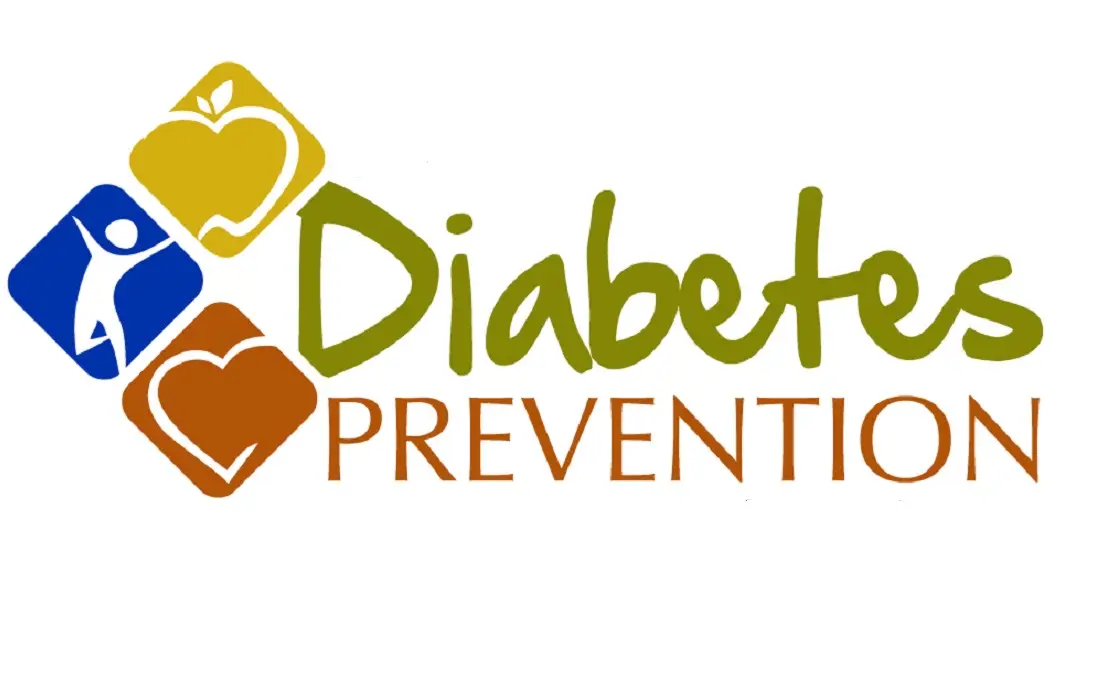People in almost every region of the world could benefit from rebalancing their diets to eat optimal amounts of various foods and nutrients, according to the Global Burden of Disease study tracking trends in consumption of 15 dietary factors from 1990 to 2017 in 195 countries, published in The Lancet. The study estimates that one
Category: Diet
THE STAGGERING COSTS OF DIABETES – HEALTHCOACH
The American Diabetes Association (Association) released new research on March 22, 2018 estimating the total costs of diagnosed diabetes have risen to $327 billion in 2017 from $245 billion in 2012, when the cost was last examined. This figure represents a 26% increase over a five-year period. The study, Economic Costs of Diabetes in the
HEART HEATH
Gerald J Joseph Diet
by Gerald J. Joseph, B.S., M.Ed HealthCoach
Heart disease
Health disease is the number one killer of men and women in the United States today and about one in four Americans die from the disease every year. This adds up to about 610,000 individuals. In addition, 735,000 people have heart attacks each year.
Cardiovascular disease
Cardiovascular disease is a class of diseases that involve the heart, blood vessels and includes coronary artery diseases such as angina and myocardial infarction, called a heart attack. Coronary artery disease, stroke, and peripheral artery disease involve atherosclerosis.
Atherosclerosis
In 1948, researchers under the direction of the National Heart Institute (now called the National Heart, Lung and Blood Institute) initiated the Framingham Heart Study, the first major study to help understand heart disease.
In 1949, the term “arteriosclerosis” (known as “atherosclerosis” today) was added to the International Classification of Diseases, which caused a sharp increase in reported deaths from heart disease.
Unfortunately, the results of this major study were misinterpreted and as a result, medical doctors and nutritionists place far to much value on reducing total fat intake, and not on small particle LDL and did take into account the role good fat play on health. While saturated fats and trans fats are indeed linked to heart disease, we now know is that fat, especially plant=based fat is actually good for heart health.
Unsaturated fats actually help reduce cholesterol in the body while boosting HDL levels and overall heart health. A diet high in fatty acids from omega-3 fatty acids from sources such as fish, eggs, coconut, olive oil, raw nuts and seeds are part of an overall wellness program that will help prevent and in some cases begin to reverse heart disease.
Genetics
There are some genetic factors that contribute to heart disease but it is largely attributed to environment, over consumption of animal proteins, poor gut bacteria, inflammation, lack of activity and poor lifestyle habits such as smoking and alcohol abuse. When looking deeper into the root causes of cardiovascular disease we must first exam the past and ask the question, why does man develop cardiovascular disease and why did man thousands of years ago also develop cardiovascular disease?
Lets look at Egypt?
In 2009 American Heart Association meeting in Florida, researchers presented study which result showed that Egyptian mummies, some 3,500 years old, had evidence of heart disease — specifically atherosclerosis, which narrows the arteries. Pharaoh Merenptah, who died in the year 1203 BCE, was plagued by atherosclerosis. Nine of the 16 other mummies studied also had evidence of the disease.
Study results are appearing in the Nov. 18 issue of the Journal of the American Medical Association (JAMA) at the Scientific Session of the American Heart Association at Orlando, Fla.
“Atherosclerosis is ubiquitous among modern day humans and despite differences in ancient and modern lifestyles, we found that it was rather common in ancient Egyptians of “high socioeconomic status” individuals living as much as three millennia ago, says UC Irvine clinical professor of cardiology Dr. Gregory Thomas, a co-principal investigator on the study. “The findings suggest that we may have to look beyond modern risk factors to fully understand the disease.”
When we look at ancient hunter-gatherers, scientists also noted that they also suffered from clogged arteries, revealing that the plaque build-up causing blood clots, heart attacks and strokes was also debilitating man thousands of years ago.
“This is not a disease only of modern circumstance but a basic feature of human aging in all populations,” said Caleb Finch, USC University Professor, ARCO/ Kieschnick Professor of Gerontology at the USC Davis School of Gerontology, and a senior author of the study. “Turns out even a Bronze Age guy from 5,000 years ago had calcified, carotid arteries,” Finch said, referring to Otzi the Iceman, a natural mummy who lived around 3200 BCE and was discovered frozen in a glacier in the Italian Alps in 1991.”
How could this be possible?
Researchers theorized that diet could be involved. High-status Egyptians ate a lot of fatty meats from cattle, ducks, and geese, and used a lot of salt for food preservation. Beyond that, the study brought up some interesting questions and has prompted scientists to continue their work to fully understand the condition. “The findings suggest,” said co-principal investigator on the study and clinical professor Dr. Gregory Thomas, “that we may have to look beyond modern risk factors to fully understand the disease.”
Mechanism of Action
Atherosclerosis can start very early in life, kids can have little bumps on their arteries and even stillbirths can little tiny nests of inflammatory cells. Studies show that environmental factors can accelerate heart disease showing larger plaques in children exposed to household tobacco smoking or who are obese.
So some say genetics, some say the environment and some say it is a combination of the two with more weight on the environment.
Bacteria & Cardiovascular Disease
What is it to be human?
The facts are, only 10% of the cells in our body are human!
Research has determined that we share our life with around 100 trillion organisms, which comprise something called our microbiome. For every one of our cells, there are 10 microbial cells living on or inside our body, helping us to perform life-sustaining functions that we couldn’t perform without their help.
Our dependence on the microbiome within us has led many experts to observe that we are truly more of a super-organism than simply human.
Gut Bacteria
Git bacteria in your gut can play a role in heart disease. New research shows that choline, a nutrient found in foods like egg yolks and fatty meats, produces the by product TMAO when digested. TMAO is known to promote plaque accumulation in the arteries causing heart disease.
“Dr. Hazen explains, “Bacteria that live in our intestines play a role in the digestion of certain types of food to form the compound TMAO, which promotes the accumulation of plaque in the arteries.”
Participants in the study were asked to eat two hard-boiled eggs and take a choline capsule. Results showed that TMAO levels in the blood increased after ingesting the eggs and the capsule. And when participants were given antibiotics to suppress their gut flora, their TMAO levels dropped. This illustrated how important gut flora is to the formation of TMAO.
Here is the problem with the study; they used “hard boil eggs, and synthetic choline. Eggs yolks from organic eggs that are consumed with a runny yolk are a great source of fatty acids, but when cooked it changes the chemistry of the eggs making them less healthy
Lecithin
Lecithin is known for helping to prevent arteriosclerosis, protecting against cardiovascular disease, improving brain function, facilitating repair of the liver and promoting energy. Lecithin is a fat emulsifier. It enables fats such as cholesterol to be dispersed in water and removed from the body. It also protects vital organs and arteries from fatty buildup. Most commercial lecithin is derived from soy.
The best food source for consuming lecithin is egg yolks. Part of the controversy surrounding eggs and cholesterol revolves around the lecithin content of the egg yolk. Since egg yolks are an excellent source of lecithin they are considered beneficial in reducing cholesterol only if the cooking method preserves the lecithin content. Cooking at high temperatures denatures or destroys the lecithin.
This means that any form of cooking that results in runny yolks preserves the lecithin and makes the egg beneficial in reducing cholesterol. Egg yolks cooked solid do not have the same benefit. Documented health benefits of lecithin includes the following.
Lecithin helps to prevent and treat atherosclerosis by lowering total cholesterol, lowering triglycerides, lowering LDL cholesterol and increasing HDL cholesterol. Lecithin reduces the risk of gallstones and in some cases has reduced the size of existing gallstones.
Lecithin helps to repair liver damage caused by alcohol consumption. Lecithin also helps psoriasis that is related to faulty fat metabolism. Lecithin is critical in the body’s ability to utilize the fat soluble vitamins A, D, K, and E. Adding lecithin to your diet could help with utilization of any and all of these essential vitamins. Lecithin is an important component of brain and nerve tissue. It is particularly concentrated in the myelin sheaths that serve as the protective coating of the nerves.
Lecithin helps to prevent age associated memory impairment and may prevent further deterioration of mental function in Alzheimer’s patients.Parts of the lecithin family are becoming popular health supplements. These are phosphatidylcholine and phosphatidylserine. While phosphatidylcholine has primarily the same benefits as lecithin, phosphatidylserine has tremendous brain and nerve benefits.
These include alleviating dementia and early symptoms of Alzheimer’s. Phosphatidylserine also improves memory, attention span and learning ability. Another benefit of phosphatidylserine is that it reduces excessive release of the stress hormone cortisol.
Currently there is strong evidence to support the role of systemic inflammation in the development and progression of atherosclerosis.
In the End
Heart health starts and stops by consuming foods that our body co-evolved to consume which include high plant-based foods, root vegetables, whole fruits, nuts and seed, low amounts animal proteins, dairy and grains, daily movement, hydration, and a dash of love.
References
Amano A, Kuboniwa M, Nakagawa I, Akiyama S, Morisaki I, Hamada S. Prevalence of specific genotypes of Porphyromonas gingivalis fimA and periodontal health status. J Dent Res. 2000;79:1664–8. [PubMed]
Hu F.B., Stampfer M.J., Rimm E.B., Manson J.E., Ascherio A., Colditz G.A., Rosner B.A., Spiegelman D., Speizer F.E., Sacks F.M., et al. A prospective study of egg consumption and risk of cardiovascular disease in men and women. JAMA. 1999;281:1387–1394. doi: 10.1001/jama.281.15.1387. [PubMed][Cross Ref]
Qureshi A.I., Suri F.K., Ahmed S., Nasar A., Divani A.A., Kirmani J.F. Regular egg consumption does not increase the risk of stroke and cardiovascular diseases. Med. Sci. Monit. 2007;13:CR1–CR8. [PubMed]
Nakamura Y., Iso H., Kita Y., Ueshima H., Okada K., Konishi M., Inoue M., Tsugane S. Egg consumption, serum total cholesterol concentrations and coronary heart disease incidence: Japan public health center-based prospective study. Br. J. Nutr. 2006;96:921–928. doi: 10.1017/BJN20061937. [PubMed][Cross Ref]
Handelman G.J., Nightingale Z.D., Lichtenstein A.H., Schaefer E.J., Blumberg J.B. Lutein and zeaxanthin concentrations in plasma after dietary supplementation with egg yolk. Am. J. Clin. Nutr. 1999;70:247–251. [PubMed]



